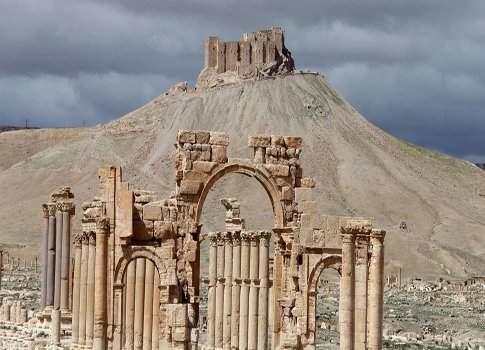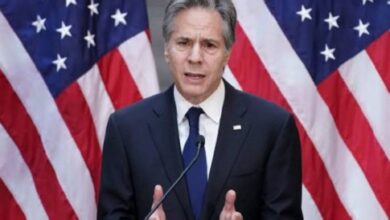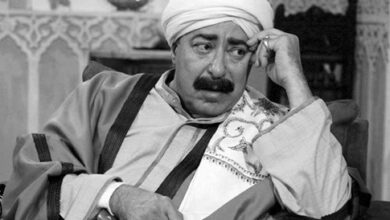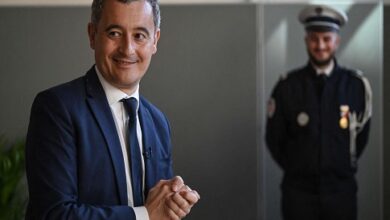Promoting Intercultural Dialogue through Safeguarding Cultural Heritage

Our shared heritage, tangible and intangible, is the symbol and repository of our collective memory; evidence of our evolving social identity and our inspiration for the future. It gives back a voice to those now silenced, to tell of their achievements, of their disasters—natural or manmade—and of their beliefs and philosophies of life. How often, contemplating some magnificent temple or simple landscape, littered with bumps and mounds that tell of possible dwellings or burial sites of previous ages, do we travel back in time and across the globe to see how different peoples have shaped our world and been molded by it. Each of us, in our own different way, absorbs the intimation that speaks of whole societies, of peoples, and their complex interactions; ways of life and thought that preceded our own, culminating through human adversity in a legacy that is the 21st century. Some of this exploration of our shared history will be evidence-based, some pure imagination, yet ultimately our understanding of past cultures is essential to understanding ourselves, our homelands, past and present, and our common humanity.
Viewed in this light, far from being the afterthought in the “security basket”, culture and cultural heritage acquire a power of their own. Sadly, despite the UNESCO Convention for the Protection of Cultural Property in the Event of Armed Conflict (the Hague Convention of 1954) and the best efforts of the International Blue Shield Committee—formed to protect world cultural heritage as defined by the Hague Convention—we continue to see the terrifying scale of destruction of cultural and religious heritage, spiraling at times of conflict. The images from 2001 of the collapsing Bamiyan Buddhas in Afghanistan are emblematic of the high price of war and extremism on humankind’s common cultural past. Whilst, for the current generation, this high price comes in the form of having to witness one of the worst humanitarian and cultural disasters in history, no less than the destruction of Mesopotamia, the Levant and Arabia Felix, or Yemen.
When culture is an expression of creative diversity, it becomes the enemy of those who seek to impose a single world view, because culture is based on respect for “the other.” And diversity denies such intellectual terrorism. Da’esh, the Taliban, Boko Haram and their like are not the first to have recognized this point and sadly, will not be the last. It is vital therefore that the declarations of UNESCO and other global bodies reaffirm the point that the right to protect cultural diversity and heritage is a cultural and humanitarian right, a right of future generations and an important part of the panoply of human rights.
The Middle East region, and the ancient city states of Mesopotamia, the Levant, Arabia Felix—the Fertile Crescent, are widely considered the ‘cradle of civilization.’ This ancient world fostered the beginning of Western civilization, ahead of the Ancient Greek and Roman worlds and the Abrahamic Faiths, and as such is central to the development of knowledge, its transmission further afield and human history.
It is here that man learned to live in cities and to write epics, not to mention pioneering the invention of the 360 degree circle. Babylonian and Assyrian intellectual history, science, literature and religion influenced the ‘enlightenment’ in a direct expression in the route of ideas. It is also where humankind first developed a code of law. On this last point, it is imperative for nations in this region to turn to the law as a vital tool against cultural destruction. It is for this reason that my country, Jordan, not only joined the International Criminal Court but stands as a leading supporter of the Court. I echo the previous calls issued by my government for the countries of our region to join the ICC. Doing so is in lockstep with our region’s heritage, and an investment in our collective security and future prosperity.
The ICC’s case against a militant extremist in Mali for the horrific destruction of cultural property exemplifies why the ICC is such a needed international organization. Put simply, if not for the ICC, what options of redress would be available for the cultural war crimes committed in Timbuktu and elsewhere in Mali? This reason alone should encourage countries like Iraq – where groups like Da’esh are systematically targeting and destroying some of humanity’s most cherished artefacts – to ratify the Rome Statute. In this light, our legal history is key to protecting the totality of our history.
Why is saving our cultural history so critical? For one, culture is an undervalued means of building a better future. To date, too little emphasis has been given to the key role played by, and the inter-relationship between, culture in intercultural dialogue and sustainable development. Heritage, far from being a matter of dusty old ancient relics, is a dynamic vehicle, transferring knowledge across and within continents and inspiring respect and joy in past achievements and in human diversity. We need to ensure that by designing international or regional projects dedicated to the promotion of heritage, such forms of cultural expression regain not only their intrinsic value, but their stature as tools for mutual understanding and appreciation, or in other words, for intercultural dialogue. In this way, a continuum of the imagination can inspire, particularly younger generations, in the direct contacts that will give them insights into new realities, other than the customary stereotypes and imposed prejudices, particularly as regards man’s inspirational and varied religious ‘heritage.’ As conservation practitioners, lawyers, policymakers, researchers, and educators in the field, but equally as members of the public to whom after all cultural heritage belongs, we all need to become involved in the ‘preservation’ of cultural heritage, including the preservation of our past.
In addition to the Silk routes, the Spice routes, and the Pilgrimage routes, the Routes of Creative Ideas are part of our cultural heritage. Only through positive engagement, dialogue and action can we realize our potential at all levels of responsibility – continuity, innovation and change. The changing nature of the right to cultural heritage affects the forms of protection, access to, and governance of cultural heritage. In this process, we must continue our efforts to promote the development of positive law and jurisprudence, and to support institutions like the ICC, that serve to protect cultural heritage. At the same time, however, we must retain our focus on soft-law rules, diplomacy, and cultural cooperation as possible alternative devices for fostering inter-cultural dialogue and understanding. On a different level, attention must be paid to producing innovative toolkits for the management and protection of our heritage, in particular digitization processes with the development of databases, virtual museums, etc. In this way a contribution can be made towards the development of sustainable strategies for protecting and managing cultural heritage as a means to foster international and inter-cultural dialogue within the region. Cultural heritage can only be safeguarded in the long term if the right scientific, legal, organizational and infrastructural conditions exist at national and international level.
Our shared heritage, tangible and intangible, cuts across boundaries and provides the basis of humanity’s rich cultural diversity. Its preservation, and the preservation of our human heritage, cannot be achieved by a handful of committed individuals, but is dependent on each and every one of us. It is in this light that I renew my call for the creation of a regional heritage entity or a heritage commission for the region – an agency tasked with progressively mapping and preserving the historical treasures in our region. We need a qualitative involvement and a cross-regional approach to preserve our world’s heritage. The Brazilian lyricist and novelist Paulo Coelho, tells us that:
“Culture makes people understand each other better. And if they understand each other better in their soul, it is easier to overcome the economic and political barriers. But first they have to understand that their neighbor is, in the end, just like them, with the same problems, the same questions.”
INTERNATIONAL CRIMINAL JUSTICE TODAY




